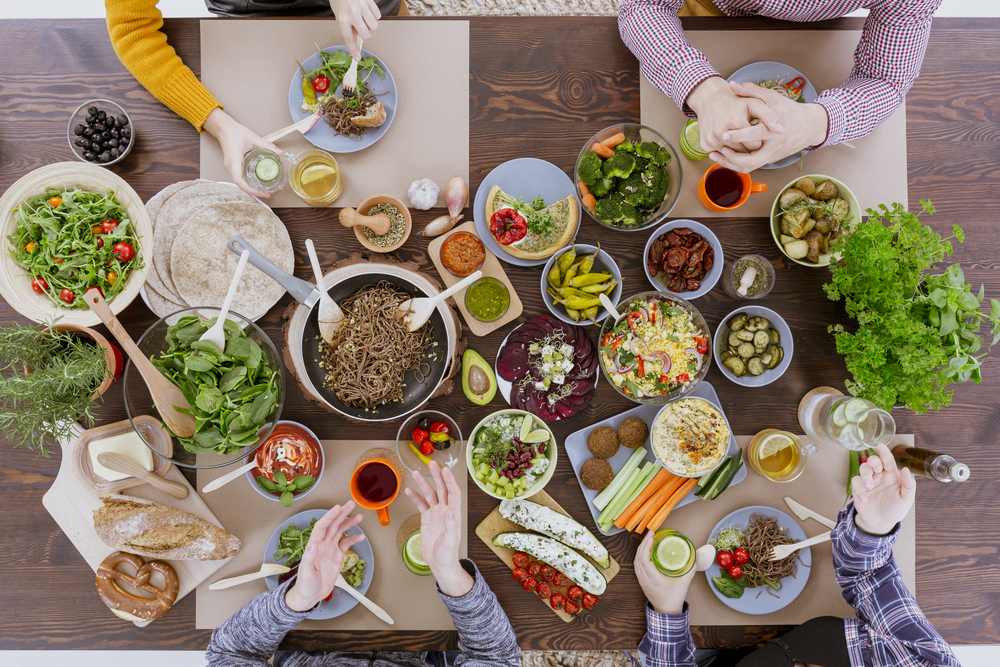
The Rise of Plant-Based Eating: Exploring Vegan and Vegetarian Options
In recent years, the world has witnessed a significant shift towards plant-based eating, with more and more people adopting vegan and vegetarian lifestyles. This trend is driven by a growing awareness of the environmental, health, and animal welfare benefits of a plant-based diet. In this article, we’ll delve into the world of vegan and vegetarian options, exploring the benefits, myths, and delicious possibilities of this exciting culinary movement.
What’s the Difference Between Vegan and Vegetarian?
While both vegan and vegetarian diets exclude meat, there are some key differences between the two. Vegetarians do not eat meat, fish, or poultry, but may consume dairy products and eggs. Vegans, on the other hand, do not consume any animal products, including dairy, eggs, honey, and even gelatin. This means that vegans must carefully read food labels and ask questions about ingredients to ensure that they are sticking to their plant-based diet.
Benefits of a Vegan or Vegetarian Diet
So, why are so many people choosing to adopt a vegan or vegetarian lifestyle? The benefits are numerous:
- Environmental benefits: Animal agriculture is a significant contributor to greenhouse gas emissions, deforestation, and water pollution. A plant-based diet can help reduce your carbon footprint and support sustainable living.
- Health benefits: A well-planned vegan or vegetarian diet can help reduce the risk of chronic diseases, such as heart disease, type 2 diabetes, and some types of cancer.
- Animal welfare benefits: By choosing plant-based options, you’re supporting animal welfare and reducing the demand for animal products that may involve inhumane treatment.
Common Misconceptions About Vegan and Vegetarian Diets
Despite the many benefits, there are still some common misconceptions about vegan and vegetarian diets:
- Myth: Vegan and vegetarian diets are boring and lack flavor.
- Reality: Plant-based cuisine is incredibly diverse and flavorful, with a wide range of international cuisines to explore.
- Myth: You’ll be lacking in protein or essential nutrients on a vegan or vegetarian diet.
- Reality: A well-planned vegan or vegetarian diet can provide all the necessary nutrients, including protein, iron, calcium, and vitamin B12.
Delicious Vegan and Vegetarian Options
So, what are some delicious vegan and vegetarian options to try?
- Vegan: Try a vegan "cheese" board with plant-based cheeses, crackers, and fruit. Enjoy a vegan "meatball" sub sandwich made with tofu or tempeh. Indulge in a rich and creamy vegan chocolate cake.
- Vegetarian: Savor a hearty vegetarian lentil soup with crusty bread. Enjoy a grilled portobello mushroom burger with avocado and sweet potato fries. Treat yourself to a decadent vegetarian lasagna with ricotta cheese and spinach.
Tips for Transitioning to a Vegan or Vegetarian Diet
If you’re considering adopting a vegan or vegetarian lifestyle, here are some tips to help you get started:
- Start small: Begin by incorporating one or two plant-based meals into your diet each week and gradually increase the number of vegan or vegetarian meals.
- Explore new ingredients: Try new grains, legumes, and vegetables to add variety to your meals.
- Find vegan or vegetarian-friendly restaurants: Look for restaurants that offer plant-based options or try online ordering and delivery services that cater to vegan and vegetarian diets.
- Get support: Join online communities or local vegan and vegetarian groups to connect with like-minded individuals and get support and advice on your journey.
In conclusion, a vegan or vegetarian diet is not only a healthy and sustainable choice, but also a delicious and exciting culinary adventure. By understanding the benefits, debunking common misconceptions, and exploring the many vegan and vegetarian options available, you can join the growing community of plant-based eaters and experience the many rewards of a compassionate and sustainable lifestyle.
